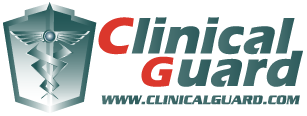What is nebulizer?
A nebulizer machine is a device used to administer medication to people in the form of a mist inhaled into the lungs. It is commonly used in treating cystic fibrosis, asthma, and other respiratory diseases.
What is different between an Ultrasonic Nebulizer and Nebulizer Compressor?
There are two main types of nebulizers: the ultrasonic nebulizer and the nebulizer compressor
Jet Nebulizer
Also called piston-pump compressors, jet nebulizers work by connecting tubing to a compressed air source, causing air to blast at high velocities, turning the liquid medicine into an aerosol, which is then inhaled by the patient. As a direct result of the nebulizer compressor being attached to the air compressor, this treatment may be very loud and uncomfortable. Jet nebulizers also tend to be very heavy and are not as easy to transport from one location to another.
Ultrasonic Nebulizer
Unlike the jet nebulizer, ultrasonic nebulizers use ultrasonic waves, which are undetectable by human ears. As a result, ultrasonic nebulizers are completely silent and more comfortable than jet nebulizers. Ultrasonic nebulizers are also much smaller than jet nebulizers and are perfect for transporting from one location to another. They work by vibrating a metal plate at ultrasonic frequencies, creating a mist, allowing for ease of inhalation. Although lighter, quieter, and more compact than jet nebulizers, ultrasonic nebulizers are more expensive.
What kind of medications are used to treat respiratory diseases?
Two common types of medications used in conjunction with nebulizers are Albuterol and Mucomyst:
Albuterol
- Also known as Proventil or Ventolin, Albuterol is a bronchodilator.
- Albuterol acts as a muscle relaxer for your airways. Your airways, which are surrounded by muscles, act like tubes. In certain situations, your muscles may constrict or spasm, tightening your airways, making it difficult to breathe. Bronchodilators, such as Albuterol, help those muscles to relax, causing your airways to open up.
- Although extremely rare, if Albuterol is used in combination with a corticosteroid, a potential yeast infection, or hoarseness of voice, may occur. To avoid these adverse side effects, many clinicians suggest rinsing your mouth after using the nebulizer. This is only necessary when using Albuterol in combination with corticosteroids, as Albuterol, when used by itself, does not have these side effects. However, those only using Albuterol may still want to rinse their mouth out after use, due to its unpleasant taste.
Mucomyst
- Mucomyst is a mucolytic drug that helps to break up the bonds in the mucous, making it easier to cough out secretions, ultimately clearing up the airways for easier breathing.
- A common side effect of chronic lung diseases, such as asthma, is swollen airways filled with mucous. As a result, this type of medication is effective as a form of treatment.
How are these medicines administered via the nebulizers?
Usually, the aerosolized medicine is inhaled through a tube-like mouthpiece, similar to that of an inhaler. In many situations, specifically for young children or elderly, facemasks are preferable for ease of use. In most scenarios, facemasks result in reduced lung delivery due to aerosol losses in the nose. As a result, mouthpieces are preferable for patients that are able to use them, due to their increased efficiency.
Other Things To Consider:
Who will be using the nebulizer?
This is an important question to ask before purchasing a nebulizer. If the nebulizer is going to be used by children, there are many kid-design options to make it easier for your child to use the mask. For a child, using a nebulizer may be an unpleasante activity, so by adding something fun, like a penguin mask, the process can be made more enjoyable. Also, if the nebulizer will be used by a young child or infant, an inhalation mask will needed.
How long do nebulizers last?
Many nebulizer products, including nebulizer cups, tubing, and mouthpieces, have recommended timeframes in which they are most effective. Using the nebulizers outside of these specified timeframes may cause the nebulizer to not work properly. As a result, it is really important that you keep this in mind when using nebulizers to administer medications.
Disclaimer:
The information on this website aims to provide customers with relevant knowledge regarding our products. Under no circumstances should the information be used for therapeutic purposes. Customers must consult their doctors for the correct use of these information and products. ClinicalGuard.com is not responsible for any losses or accidents caused by the use of information on this website.

